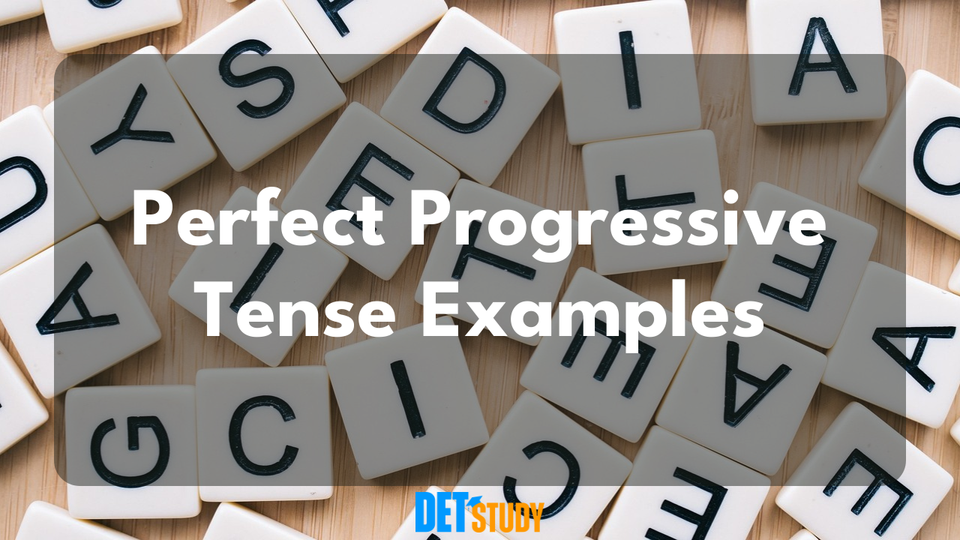Perfect Progressive Tense Explained: Examples to Elevate Your Writing

Introduction to Perfect Progressive Tense
The perfect progressive, also known as the perfect continuous tense, combines perfect and progressive aspects. It describes an action that began in the past, continued for a duration, and is either still happening or has effects felt now. This tense highlights the duration or continuous nature of an activity. ⏳
Key Formations and Uses:
- Present Perfect Progressive Tense: (Describes ongoing actions from the past, relevant now.)
Examples: - "She has been studying for three hours." - "They have been playing soccer since 2 PM."
- Past Perfect Progressive Tense: (Describes actions ongoing in the past before another past event.)
Examples: - "I had been working for five years when I got promoted." - "By the time we arrived, they had been waiting for over an hour."
- Future Perfect Progressive Tense: (Describes actions ongoing before a future event or time.)
Examples: - "By next year, she will have been living here for a decade." - "We will have been traveling for 10 hours by the time we reach our destination."
Remember: These tenses emphasize an action's duration and how it impacts other events over time. Practice with time expressions like "for," "since," and "by" to build fluency. 🚀
Practicing these tenses with exercises and conversation examples can help build understanding and fluency in English. It's beneficial to associate them with time expressions like "for," "since," "by," and "until" to reinforce their use.
Save Money on Your Duolingo English Test with Official Coupon CodeUnderstanding the Structure of Perfect Progressive Tense
To grasp the perfect progressive tense, we'll examine each form. It combines the perfect and continuous aspects to show an action's duration over time. Each tense uses "have/has/had/will have been" plus a verb ending in "-ing".
Present Perfect Progressive Tense
- Structure:
have/has been+ verb-ing - Usage: For actions that began in the past and continue now, or have present effects.
Examples: - "I have been reading this book for two weeks." - "She has been learning French since January." - "They have been working on the project all day."
Past Perfect Progressive Tense
- Structure:
had been+ verb-ing - Usage: For actions ongoing in the past, stopping before another past event occurred.
Examples: - "He had been jogging every morning until he moved away." - "We had been discussing the plan for hours before we agreed." - "She had been working at the bakery for a year before her new job."
Future Perfect Progressive Tense
- Structure:
will have been+ verb-ing - Usage: For actions that will continue up to a specific future point or event.
Examples: - "By next summer, I will have been studying at the university for three years." - "In December, he will have been working there for a decade." - "They will have been volunteering at the shelter for a month by the time we visit."
This tense connects an action's start, its ongoing duration, and its relevance to the present or future. Mastering it helps express complex time relationships and continuous actions in various contexts. Practice makes perfect! ✨
Examples of Present Perfect Progressive Tense
This tense describes actions from the past that are still ongoing or have current relevance. It uses "have/has been" + verb-ing.
Practice English NowExamples:
-
"I have been studying for my exams all week."
-
"She has been playing the piano since she was six years old."
-
"They have been working on this project for several months."
-
"We have been waiting for the bus for forty minutes."
-
"The kids have been enjoying the summer camp this week."
-
"He has been running every morning."
-
"You have been doing great work this year."
How It’s Used with Time Expressions:
This tense often uses "for" (duration) and "since" (start point) to stress continuity from past to present. "Lately" also indicates recent, frequent actions.
- "For" indicates duration:
"I have been watching TV for three hours."
-
"Since" points to start time:
-
"She has been wearing glasses since she was a child."
-
"Lately" for recent, frequent actions:
- "He has been sleeping poorly lately."
Using this tense effectively highlights ongoing, relevant actions and their duration, adding depth to communication. Practice helps internalize its use. 👍

Examples of Past Perfect Progressive Tense
This tense describes actions ongoing in the past, completed before another past action or time. It emphasizes duration, using "had been" + verb-ing.
Examples:
-
"I had been studying for hours before the power went out."
-
"She had been living in Paris for a year when she got the job offer."
-
"They had been arguing about the new policy until they reached an agreement."
-
"We had been waiting at the bus stop for thirty minutes before the bus arrived."
-
"By the time Mark arrived, we had been cooking for two hours."
-
"The children had been playing outside when it started to rain."
-
"He had been reading a novel before the class started."
Usage with Time Expressions:
This tense uses expressions like "before," "when," "by the time," and "until" to show past action duration and continuity.
- "Before" indicates interruption:
-
"She had been practicing before the concert began."
-
"Until" signals continuation:
-
"We had been waiting until the guests arrived."
-
"By the time" emphasizes an endpoint:
- "By the time he called, I had been pondering over the issue for hours."
Mastering this tense and its time expressions improves the ability to describe sequences and durations of past actions, enriching narrative flow. 📖
Examples of Future Perfect Progressive Tense
This tense describes an ongoing action that will continue up to a future point, emphasizing its duration. It's formed with "will have been" + verb-ing.
Free English PracticeExamples:
-
"By next month, I will have been working here for five years."
-
"She will have been studying for three hours by the time her friends arrive."
-
"They will have been traveling for 48 hours by the time they reach their destination."
-
"We will have been living in the city for a decade before we consider moving."
-
"By next spring, the organization will have been operating for half a century."
-
"He will have been training for the marathon for six months by race day."
Usage with Time Expressions:
Time expressions like "by," "for," and "when" highlight duration up to a future point.
- "By" marks ongoing action completion at a future point:
-
"By the end of the year, I will have been saving money for a new car."
-
"For" specifies the action's duration:
-
"He will have been playing the guitar for ten years by the time he joins the band."
-
"When" introduces a future action after the ongoing one:
- "When the project launches, I will have been working on it for over a year."
Understanding this tense helps communicate future scenarios precisely, especially for actions leading up to milestones. Practice aids fluency in conversation and writing, adding clarity. 📈
DET Study provides an extensive suite of over 15,000 practice questions, focusing on leveraging adjectives and adverbs to fortify your grammatical skills. Regular practice with these targeted materials ensures that you approach the Duolingo English Test with enhanced confidence and precision, ready to achieve your desired scores.
🎯 Need more practice? Check out DETStudy.com for expert resources, 15,000+ practice questions, and AI-powered writing and speaking feedback.

